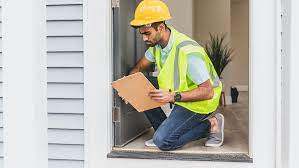Introduction
Navigating the complex world of professional building inspections is crucial for anyone involved in real estate, construction, or property management. Building inspections play a vital role in ensuring the safety, functionality, and compliance of buildings with local regulations. This article aims to provide an in-depth exploration of professional building inspections, covering their importance, types, processes, and how they impact various stakeholders.
Understanding the Importance of Building Inspections
Ensuring Safety and Compliance
Building inspections are essential for ensuring that structures are safe for occupancy and use. They help identify potential hazards, such as structural weaknesses or electrical issues, which could pose risks to occupants. Additionally, inspections ensure that buildings comply with local building codes and regulations, which are designed to uphold safety standards.
Protecting Investments
For property owners and investors, building inspections are a critical tool for protecting their investments. These inspections can uncover issues that might require costly repairs if left unaddressed, helping owners make informed decisions about maintenance and improvements.
Types of Building Inspections
Pre-Purchase Inspections
Pre-purchase inspections are conducted before the sale of a property. They provide potential buyers with an understanding of the property’s condition, highlighting any major defects or necessary repairs.
Construction Stage Inspections
During construction, several inspections are conducted at different stages to ensure that the work complies with approved plans and building codes. These include inspections of the foundation, framing, electrical systems, and final inspections.
Specialised Inspections
Specialised inspections focus on specific aspects of a building, such as pest inspections, electrical inspections, or energy efficiency assessments. These are often conducted by professionals with expertise in a particular area.
The Inspection Process
Scheduling and Preparation
The first step in a building inspection is scheduling it at a convenient time for the property owner and inspector. Property owners should ensure that the inspector has access to all areas of the building and that any necessary documents, such as building plans, are available.
Conducting the Inspection
During the inspection, the inspector examines various elements of the building, including the structure, electrical systems, plumbing, heating, and ventilation. The inspector looks for signs of wear and tear, damage, and non-compliance with building codes.
Reporting and Recommendations
After the inspection, the inspector prepares a detailed report outlining their findings. This report includes descriptions of any issues discovered, photographic evidence, and recommendations for repairs or improvements.
Choosing the Right Building Inspector
Qualifications and Experience
When selecting a building inspector, it’s important to consider their qualifications, certifications, and experience. Look for professionals who have a background in construction or engineering and are familiar with local building codes and regulations.
Reviews and References
Checking reviews and asking for references can provide insights into an inspector’s reliability and quality of work. It’s advisable to choose an inspector with a strong track record of thorough and accurate inspections.
Legal and Regulatory Considerations
Compliance with Local Laws
Building inspections must comply with local building codes and regulations. It’s important for inspectors to stay updated on any changes to these regulations.
Liability and Insurance
Professional building inspectors should have liability insurance to protect themselves and their clients in case of any oversights or errors during the inspection process.
Conclusion
Professional building inspections are a crucial aspect of property ownership and management. They help ensure the safety, functionality, and compliance of buildings, protect investments, and provide peace of mind to all stakeholders. By understanding the types of inspections, the process, and how to choose the right inspector, individuals and businesses can navigate this field effectively, ensuring their properties are safe and well-maintained.










